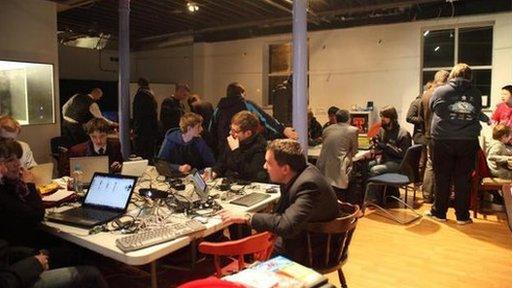Raspberry Pi Farset Labs 'jams' teach kids how to code computers
- Published
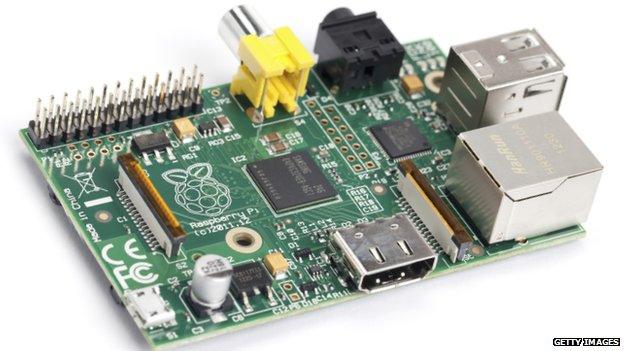
The Raspberry Pi is about the same size as a credit card
How can a small device that looks like little more than a circuit board teach kids how to write computer programs?
The Raspberry Pi is far removed from the slick smartphones and tablets that so many of us have come to rely on, but one computer science student says the credit card-sized device is perfect for demonstrating what can easily be done with code.
Eighteen-year-old Andrew Mulholland is in his first year of studying computer science at Queen's University Belfast.
In his spare time, he visits schools as part of an outreach programme by the charity Farset Labs, a self-styled "leisure centre for geeks".
Andrew says the budget-priced Raspberry Pi is "a great sandbox for kids to learn to code on".
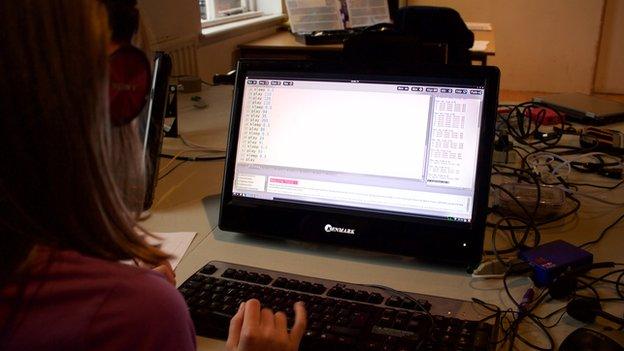
Young people learn the basic principles of computer coding at monthly events
"It doesn't look anything like a normal computer but that's the beauty of it - they can put their finger on the processor as it runs, for example, without getting electrocuted," he says.
"They can write some code in a simple programming tool, for example, or have a go with music making code where each note corresponds to a different number and you have to figure out what the different notes are.
"We show them the basic principles then they can muck about with it."

Make it Digital

BBC Blackstaff Studios in Belfast is being turned into a hub of digital activity for three days.
Part of the NI Science Festival, external, the free event is being organised in partnership with more than 15 educational and technology organisations, with over 25 hands-on activities on offer.
There are drop-in sessions, live shows and workshops in everything from coding and virtual reality to 3D printing and robotics.

Some people travel hundreds of miles to Belfast for monthly events known as "Raspberry Jams" that Andrew runs at Farset Labs, based in Weavers Court business park just off Sandy Row.
And he is hosting workshops at the BBC's Make it Digital event which runs from 26 to 28 February at Blackstaff House in Belfast.
'Small puzzles'
He says that smartphones and tablets are "locked in, whereas this is really open-ended".
"Our big aim is to show that it's not that complicated - it can be really simple and it's more about creative problem solving," he says.
"If you have the ideas to do something, it really doesn't take that long to learn how to make cool stuff."
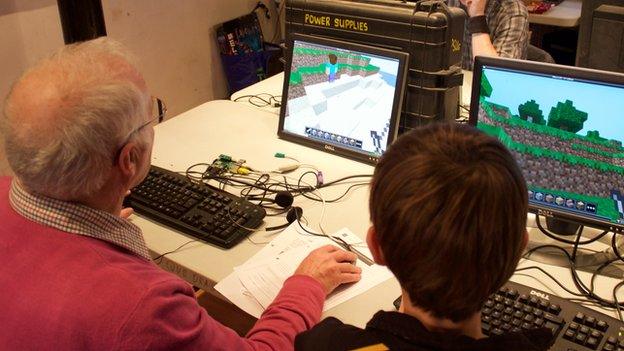
People of all ages attend Farset Labs' coding events
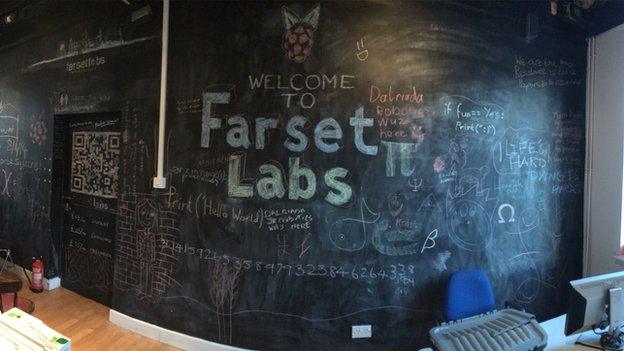
The Raspberry Pi and other similar devices fulfil a vital function for burgeoning electronic engineers and computer enthusiasts, according to Farset Labs director Andrew Bolster.
"I think that the likes of smartphones and tablets came very close to destroying the nascent computer science and electrical engineering audience," he says.
"Growing up, I got into a lot of trouble on several occasions for taking apart computers and telephones, just to see how they work.
"Nowadays they can't easily take apart a tablet computer and even if they do, it's not like they can point to it and see what the different parts do."
And Andrew Mulholland says the skills involved in ICT classes at school are very different from those in computer science.
He says there is a high dropout rate of people studying computer science at university as "some people come in with no clue of what they've signed up for".
"Last year, 106 students sat A-level computer science - out of those, only six were girls." he says.
"At GCSE, 109 took the exam, and that's just woeful."
While the Raspberry Pi looks complicated, he insists that there is nothing to be afraid of.
"A lot of this is just small puzzles - once you solve them, you go on to solve bigger and bigger ones and keep building on what you've done," he says.
- Published2 February 2015
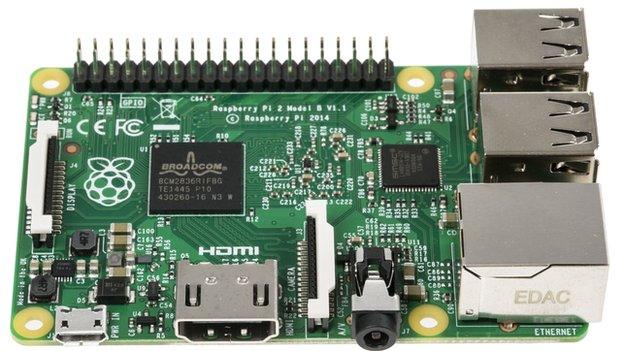
- Published8 October 2013
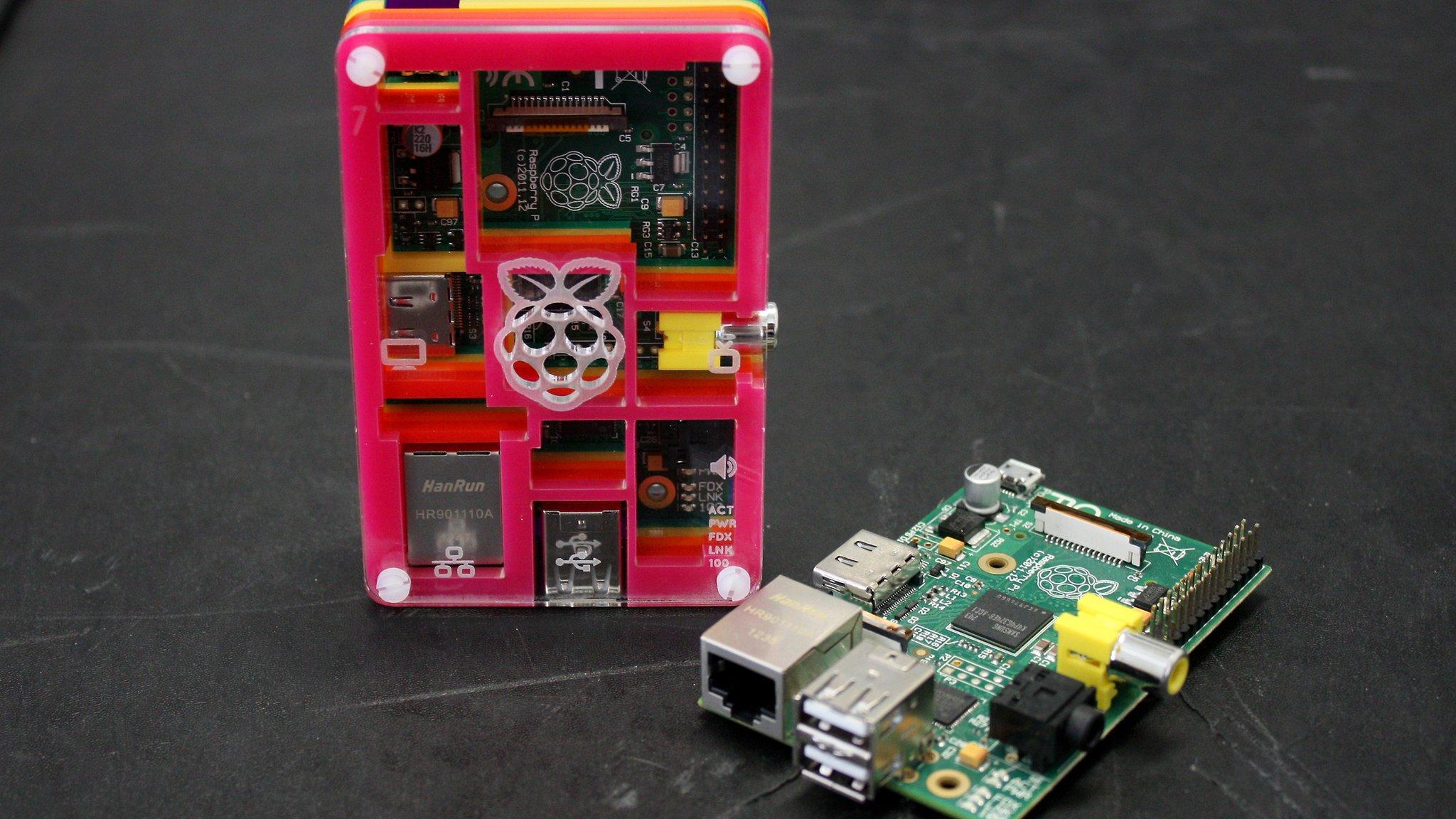
- Published28 February 2013
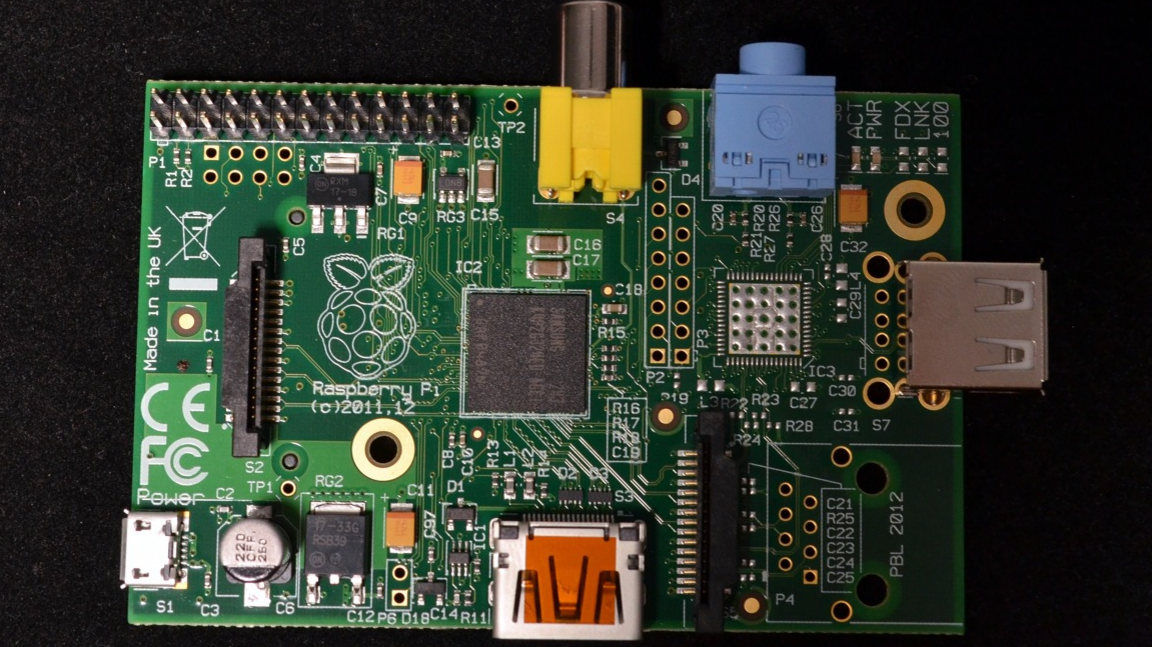
- Published23 January 2013
